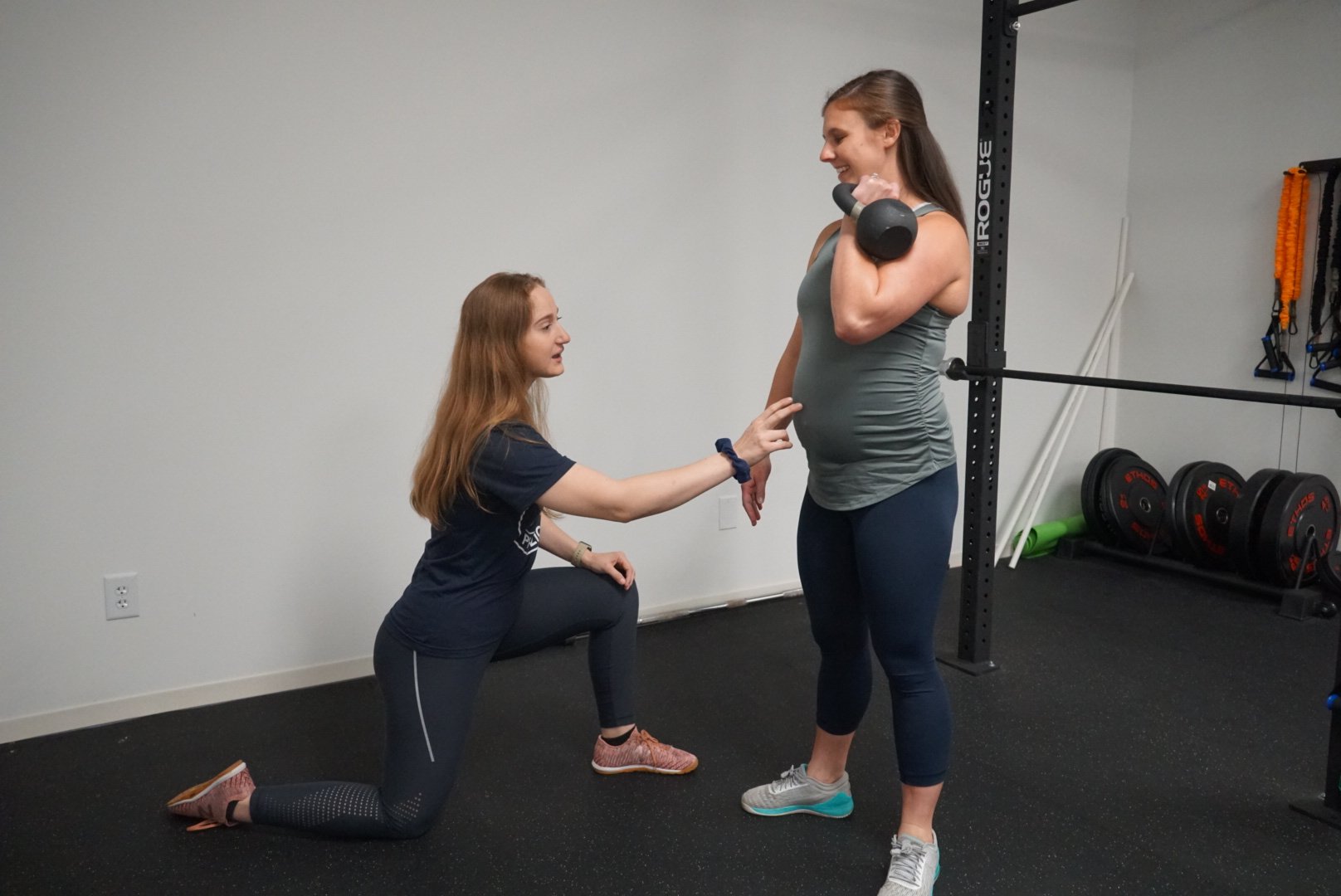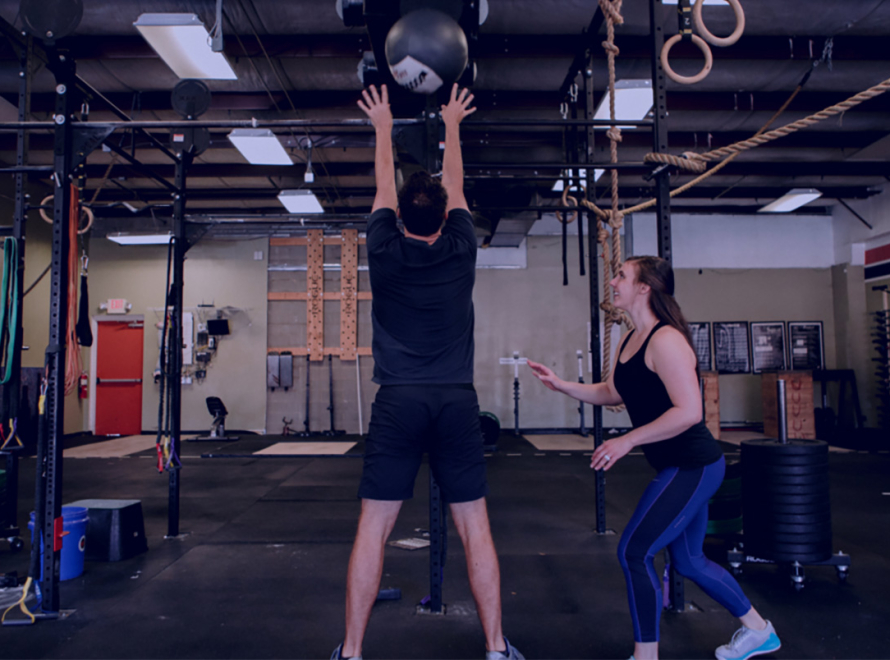Pregnancy is an exciting time for many, but it also comes with its share of physical challenges. One of the most common complaints during pregnancy is back pain, which can range from a dull ache to sharp discomfort that interferes with daily life. If you’re pregnant and dealing with back pain, you’re not alone—studies show that more than 50% of pregnant individuals experience this symptom at some point during their pregnancy.
While back pain can often feel like a “normal” part of pregnancy, it doesn’t mean you have to suffer through it. A pelvic floor physical therapy specialist can provide a safe, effective, and targeted approach to help you feel better and move more comfortably. If you’re in Durham and searching for answers, pelvic floor PT might be exactly what you need to regain confidence in your body during this transformative time.
Why Does Back Pain Happen During Pregnancy?
Back pain during pregnancy typically results from a mix of hormonal, biomechanical, and postural changes. Here are the key contributors:
- Hormonal Changes
Your body produces a hormone called relaxin during pregnancy. Relaxin helps loosen ligaments and joints, especially in the pelvis, to prepare for childbirth. While this is necessary, it can also reduce stability in the pelvis and spine, leading to back pain. - Postural Shifts
As your baby grows, your center of gravity shifts forward. To compensate, many people unconsciously adjust their posture by arching the lower back, which can strain the muscles, ligaments, and joints. - Pelvic Floor Dysfunction
The pelvic floor plays a critical role in supporting the growing uterus, maintaining stability in the pelvis, and coordinating with your core muscles. If your pelvic floor muscles are weak, tight, or imbalanced, it can lead to pain in the lower back and pelvic region.
Increased Weight and Physical Stress
Carrying the extra weight of pregnancy puts stress on your spine, pelvis, and lower body. This stress, combined with reduced core strength and stability, can trigger back pain. - Muscle Imbalances
During pregnancy, the abdominal muscles stretch to accommodate the growing baby, which may weaken the core and cause an imbalance in the surrounding muscles. Tight hip flexors, hamstrings, or glutes can further exacerbate back pain.
How Pelvic Floor Physical Therapy Can Help With Back Pain
Pelvic floor physical therapy is often an overlooked yet essential tool for managing back pain during pregnancy. A pelvic floor specialist evaluates not just the pelvic floor but also how it interacts with your core, posture, and movement patterns. Here’s how pelvic floor PT can help:
- Improved Pelvic Alignment
Misalignment of the pelvis is common during pregnancy due to ligament laxity and shifting posture. A pelvic floor physical therapist can assess pelvic positioning and provide manual therapy or exercises to restore proper alignment and reduce pain. - Strengthening the Core and Pelvic Floor
A strong, functional pelvic floor works hand in hand with the deep core muscles to stabilize the spine and pelvis. Pelvic floor PT will teach you safe, effective exercises to activate and strengthen these muscles without placing undue stress on your body. - Breathing and Postural Awareness
Many pregnant individuals adopt poor breathing and postural habits as their body changes. A pelvic floor specialist can teach you how to breathe deeply and align your posture to reduce stress on your back and pelvis. - Manual Therapy for Pain Relief
Manual therapy techniques, such as soft tissue mobilization and myofascial release, can relieve tension in tight muscles and ligaments that contribute to back pain. These techniques are gentle and tailored to your needs. - Customized Exercise Program
A pelvic floor physical therapist will design a customized program for your unique body and symptoms. This program often includes stretches, strengthening exercises, and gentle movement strategies that address imbalances contributing to back pain. - Education on Movement and Body Mechanics
Learning proper movement mechanics can make everyday activities like sitting, standing, and lifting much more comfortable. Your pelvic floor PT will guide you on how to move safely and avoid aggravating your back pain.
What Does a Pelvic Floor PT Session Look Like During Pregnancy?

If you’ve never been to a pelvic floor physical therapist, you might wonder what to expect, especially during pregnancy. At Functional Phyzio in Durham, we take a whole-body approach to assessment and treatment. Your initial visit will include:
- Thorough Evaluation
Your pelvic floor specialist will discuss your symptoms, movement history, and goals for treatment. They’ll also assess your posture, breathing patterns, pelvic alignment, and core function. - Gentle Hands-On Treatment
If needed, manual techniques are used to relieve tension, improve blood flow, and reduce muscle or ligament tightness. - Exercise Prescription
Based on your assessment, you’ll receive safe exercises tailored to your stage of pregnancy. This often includes movements to strengthen the pelvic floor, core, and stabilizing muscles while improving flexibility. - Education and Tools
Your therapist will teach you practical strategies to manage your back pain, such as modifying daily movements, using supportive props like pregnancy belts, and practicing proper body mechanics.
Benefits of Addressing Back Pain Early
Dealing with back pain sooner rather than later has significant benefits for both you and your baby. Here’s why seeking pelvic floor physical therapy during pregnancy is worth it:
- Pain Relief
By addressing the root cause of your back pain, pelvic floor PT can help you move through pregnancy with less discomfort. - Improved Mobility and Function
Strengthening the pelvic floor and core improves your ability to perform daily tasks like walking, sitting, or lifting without pain. - Easier Labor and Delivery
A well-functioning pelvic floor and core contribute to better pelvic alignment and muscle coordination, which can make labor and delivery smoother. - Postpartum Recovery
Addressing back pain and pelvic floor dysfunction during pregnancy sets you up for a faster, healthier recovery after childbirth. - Enhanced Confidence and Quality of Life
Pregnancy is a time of change, but you deserve to feel strong, supported, and capable. Pelvic floor PT can give you the tools to trust your body and stay active.
Is Pelvic Floor Physical Therapy Right for You?
If you’re pregnant and struggling with back pain, pelvic floor physical therapy can help you feel better and enjoy this special time with less discomfort. At Functional Phyzio in Durham, we specialize in performance-based physical therapy that focuses on the root cause of your symptoms. Our whole-body approach ensures you get the care, support, and relief you deserve.
Whether you’re dealing with persistent back pain, pelvic pressure, or tightness, our team of pelvic floor specialists is here to help you move confidently and comfortably through your pregnancy and beyond.
Take the Next Step Toward Relief
You don’t have to accept back pain as an inevitable part of pregnancy. By working with a pelvic floor PT, you’ll gain the tools to address pain, restore stability, and prepare your body for what’s ahead.
If you’re in Durham, we invite you to schedule a session with our pelvic floor specialists at Functional Phyzio. Let’s work together to help you feel your best so you can fully embrace this journey.
Ready to get started? Reach out to us today and take the first step toward a stronger, pain-free pregnancy!




